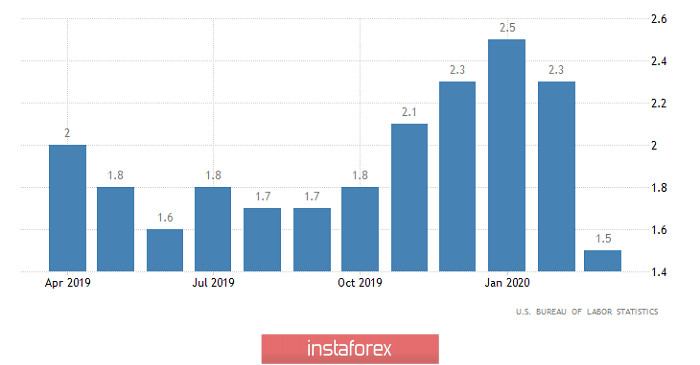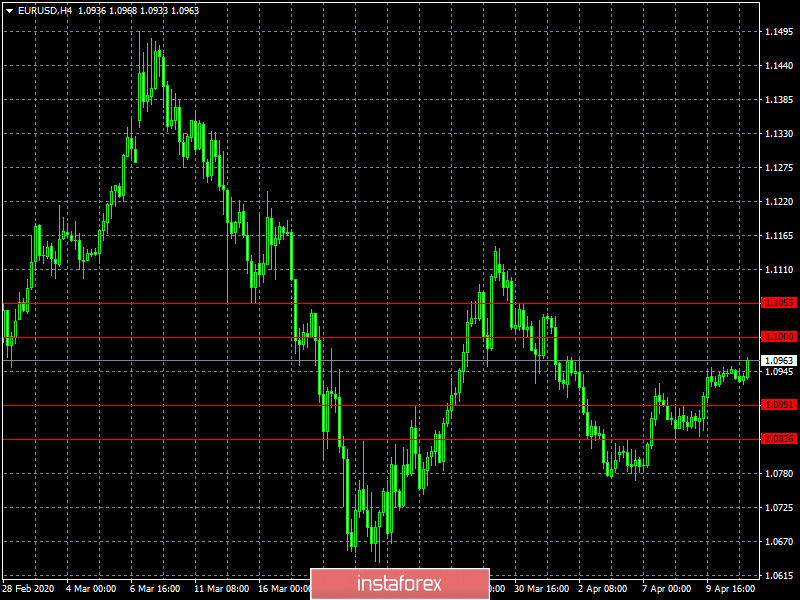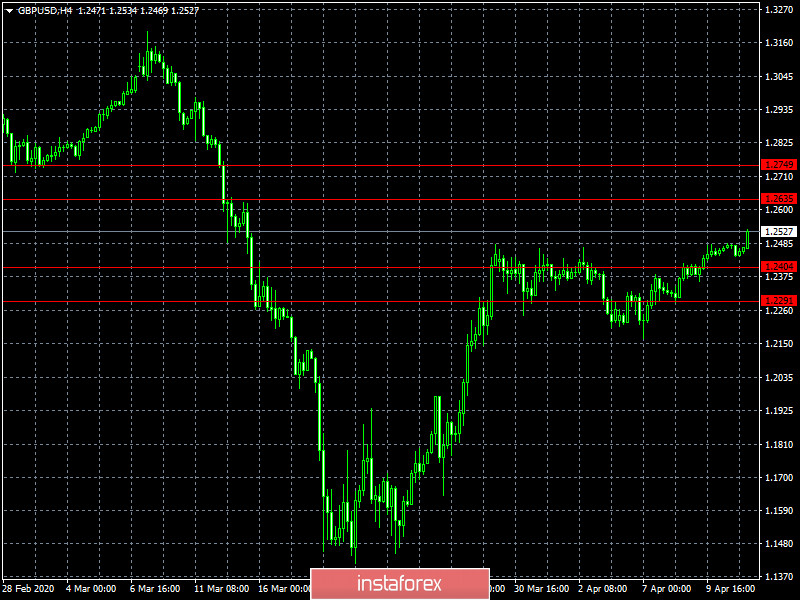Of course, it is quite strange to say that long weekends somehow affect something when almost the entire Northern hemisphere is under quarantine and a huge mass of people are sitting at home. But with regard to financial markets, this is exactly how it is. The market just fell into place since Friday and this is largely due to the celebration of Good Friday in Europe and North America. And strangely enough, this is even for the better in many ways, since the market needs to catch its breath and recover. And there was enough cause for concern on Friday, and if it were not for the holiday, it would be thrown from side to side simply with incredible strength. After all, the first results of negotiations on Friday to reduce oil production, which from the very beginning were not set, became known. The negotiations dragged on for several days and only ended yesterday. The delay was caused by the position of Mexico, which rested for a very long time, and did not want to go to any extent to reduce the production volumes that it was offered. And it is clear that the prospect of continuing price wars clearly did not add optimism to anyone, so the price of oil began to go down again. Moreover, the importance of oil for the global economy is simply fantastic, and the instability of black gold prices means total confusion in all markets. No one needs this in the context of the onset of the global recession. Otherwise, the world will get out of this pit for a very, very long time. In short, you don't have to get bored. Therefore, I say that it's even for the best that Europe and North America did not work, otherwise we would have contemplated a panic in the currency and stock markets. They were without it. Well, by Monday, Mexico was still able to dodge, and an agreement was finally reached. And it has already been christened the largest in history. However, everyone is slightly different in terms of the volume of production cuts. The only thing that can be said with absolute certainty is that the volume of production will be reduced by more than 10 million barrels per day. And even then not immediately. This process will start only in May, but the most important thing is that this agreement will somewhat calm the markets and the price of oil will clearly stabilize. Well, it can pull the entire commodity market, and then all other markets. As a result, the significance of this agreement is purely positive. While, however, it is unclear who benefits most from it. This is meant among exporting countries. This will be dealt with later, based on who will actually reduce production in what proportions.

Even due to the long weekend, which continues today in Europe, the market was able to take a break from the coronavirus, which, it seems, is not going to retreat. This is especially good for the dollar, as against the backdrop of the relative stabilization of the situation in Europe in the United States itself, there is some sort of nightmare. At the same time, mass media of agitation and misinformation only increase panic. There are only reports that the authorities of New York carry out mass graves of deceased coronavirus patients. Such rumors do not contribute to peace of mind, and big business immediately begins to look for a quieter place. In any case, the epidemiological situation in the United States is getting worse and worse every day and economic damage is already visible in full growth which is simply disastrous. Just look at the situation on the labor market. At the same time, Washington continues to take measures that, to put it mildly, have little to do with the principles of free trade. The United States has passed legislation allowing them to unilaterally impose sanctions on countries that refuse to evacuate their citizens. In other words, if a country is slow in exporting its citizens, the United States may introduce certain trade and other restrictions. And the funny thing is that the wording of this act is so vague that anyone can fall under its action. For example, representatives of foreign companies operating in the United States. It is clear that the threat of imposing sanctions will be used by Washington to squeeze out foreign capital from the US market, so there is no doubt that the recovery of the American economy is planned to be carried out at the expense of other countries.

But the dollar had another cause for concern which has not gone away and is likely to recover today. We are talking about inflation, which fell from 2.3% to 1.5%. Of course, it seems like such a result was exactly expected. But do not forget that even forecasts of such a sharp slowdown in inflation appeared after two consecutive urgent meetings of the Federal Committee for Open Market Operations. Consequently, the Federal Reserve has yet another reason to think about lowering the refinancing rate. And do not say that, they say, there is nowhere to reduce. A year ago, no one could even imagine the rapidness with which the refinancing rate had been declining over the past few months. Therefore, anything is possible. Moreover, there is now the fact of a very rapid reduction in inflation. So yes, it's even good that Friday was a public holiday, otherwise, the dollar would obviously not be too good. Well, in Europe, the holidays continue today. The macroeconomic calendar is completely empty.
Inflation (United States):

Given the extremely negative background for the dollar, the single European currency may increase in the direction of 1.1000. But it is unlikely that it will be able to break through this level today.

The pound will gradually move towards the level of 1.2625, however, it is unlikely to even be able to reach this level.






















